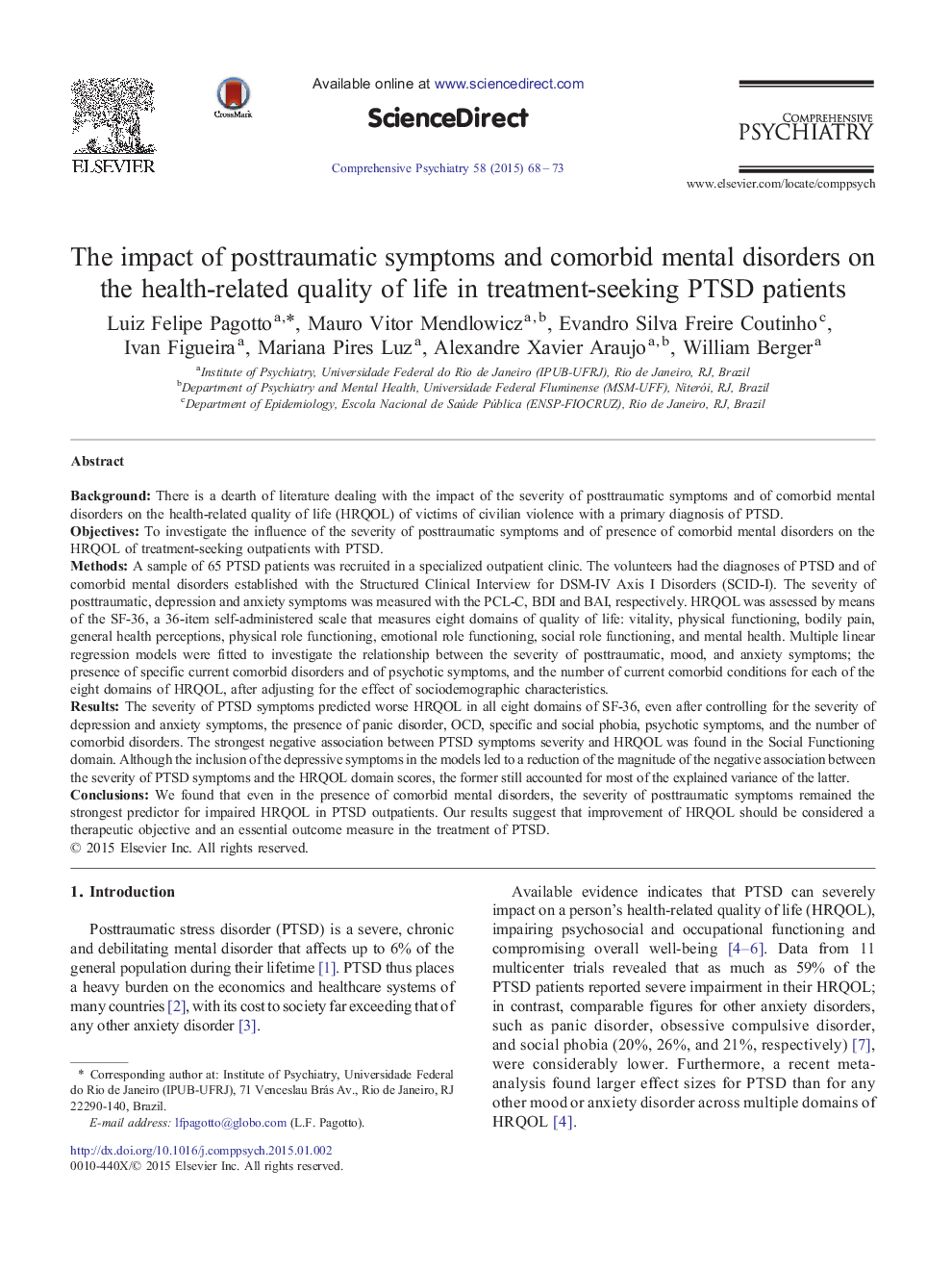| کد مقاله | کد نشریه | سال انتشار | مقاله انگلیسی | نسخه تمام متن |
|---|---|---|---|---|
| 317384 | 538163 | 2015 | 6 صفحه PDF | دانلود رایگان |

BackgroundThere is a dearth of literature dealing with the impact of the severity of posttraumatic symptoms and of comorbid mental disorders on the health-related quality of life (HRQOL) of victims of civilian violence with a primary diagnosis of PTSD.ObjectivesTo investigate the influence of the severity of posttraumatic symptoms and of presence of comorbid mental disorders on the HRQOL of treatment-seeking outpatients with PTSD.MethodsA sample of 65 PTSD patients was recruited in a specialized outpatient clinic. The volunteers had the diagnoses of PTSD and of comorbid mental disorders established with the Structured Clinical Interview for DSM-IV Axis I Disorders (SCID-I). The severity of posttraumatic, depression and anxiety symptoms was measured with the PCL-C, BDI and BAI, respectively. HRQOL was assessed by means of the SF-36, a 36-item self-administered scale that measures eight domains of quality of life: vitality, physical functioning, bodily pain, general health perceptions, physical role functioning, emotional role functioning, social role functioning, and mental health. Multiple linear regression models were fitted to investigate the relationship between the severity of posttraumatic, mood, and anxiety symptoms; the presence of specific current comorbid disorders and of psychotic symptoms, and the number of current comorbid conditions for each of the eight domains of HRQOL, after adjusting for the effect of sociodemographic characteristics.ResultsThe severity of PTSD symptoms predicted worse HRQOL in all eight domains of SF-36, even after controlling for the severity of depression and anxiety symptoms, the presence of panic disorder, OCD, specific and social phobia, psychotic symptoms, and the number of comorbid disorders. The strongest negative association between PTSD symptoms severity and HRQOL was found in the Social Functioning domain. Although the inclusion of the depressive symptoms in the models led to a reduction of the magnitude of the negative association between the severity of PTSD symptoms and the HRQOL domain scores, the former still accounted for most of the explained variance of the latter.ConclusionsWe found that even in the presence of comorbid mental disorders, the severity of posttraumatic symptoms remained the strongest predictor for impaired HRQOL in PTSD outpatients. Our results suggest that improvement of HRQOL should be considered a therapeutic objective and an essential outcome measure in the treatment of PTSD.
Journal: Comprehensive Psychiatry - Volume 58, April 2015, Pages 68–73